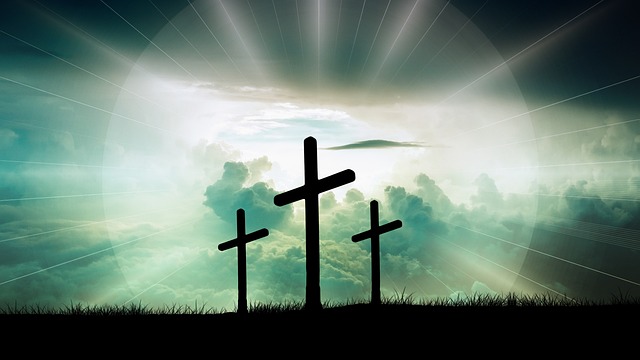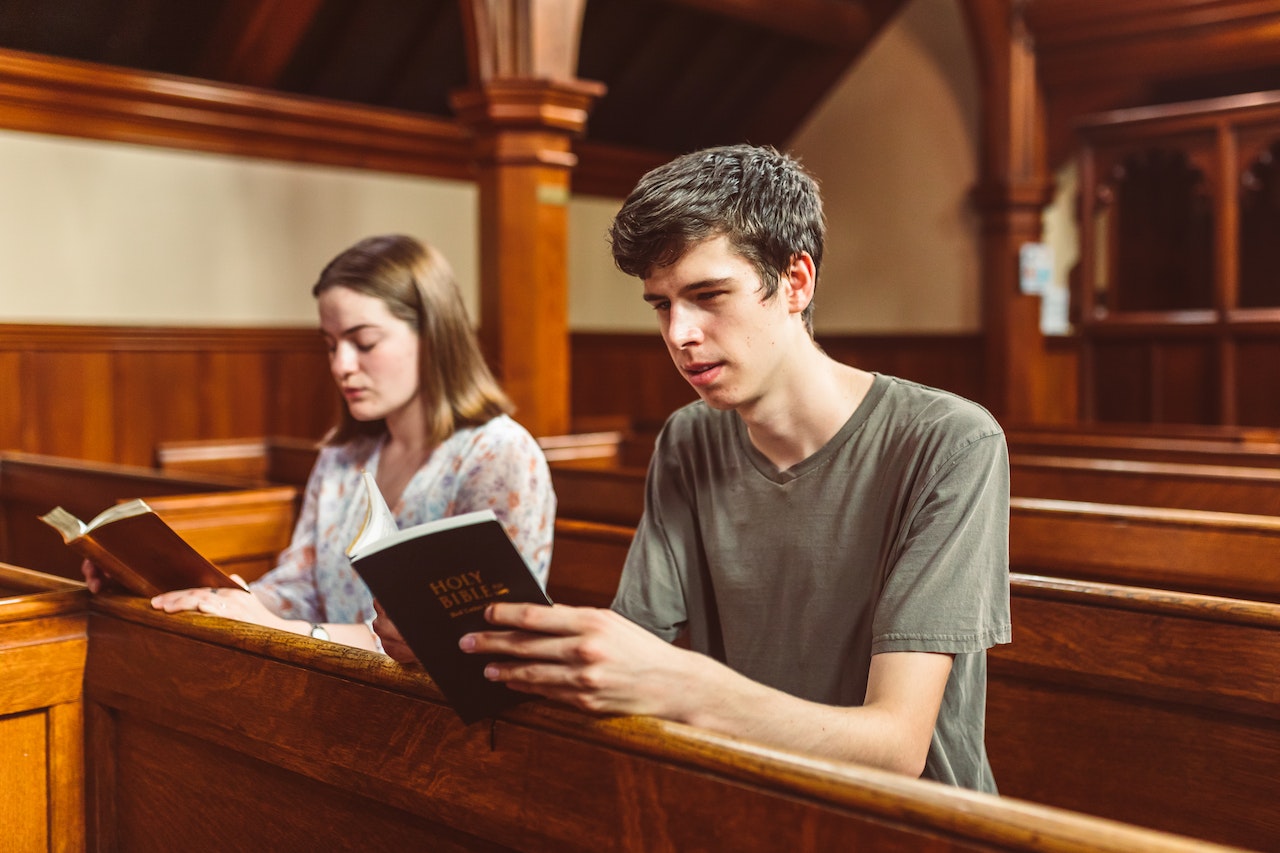Orthodox Christianity and Western Christianity are two major branches of Christianity that have evolved over centuries, each with its distinct traditions, beliefs, and practices. While both share a common foundation in the teachings of Jesus Christ, they have developed unique theological perspectives, liturgical practices, and ecclesiastical structures. This introduction aims to provide a brief overview of the key differences between Orthodox Christianity and Western Christianity, highlighting their historical, doctrinal, and cultural divergences.
Table of Contents
History and Origins of Orthodox Christianity and Western Christianity
Orthodox Christianity and Western Christianity are two major branches of the Christian faith that have evolved over centuries. While they share a common foundation in the life and teachings of Jesus Christ, they have distinct histories and origins that have shaped their beliefs and practices.
Orthodox Christianity traces its roots back to the early days of Christianity, when the apostles spread the message of Jesus throughout the Eastern Mediterranean. The term “Orthodox” comes from the Greek word “orthodoxia,” meaning “right belief.” This branch of Christianity emphasizes the importance of preserving the original teachings and traditions of the early Church.
In contrast, Western Christianity emerged from the Roman Empire and was heavily influenced by Roman culture and governance. It eventually became the dominant form of Christianity in Western Europe. Western Christianity, also known as Catholicism, places a strong emphasis on the authority of the Pope and the teachings of the Church.
The split between Orthodox Christianity and Western Christianity can be traced back to the Great Schism of 1054. This event marked the formal division between the Eastern Orthodox Church and the Roman Catholic Church. The primary cause of the schism was a disagreement over the authority of the Pope and the use of icons in worship.
Orthodox Christianity places a greater emphasis on the authority of the local bishop and the consensus of the Church as a whole. It rejects the idea of a single supreme authority, such as the Pope, and instead values the collective wisdom and tradition of the Church. This decentralized structure allows for a greater diversity of practices and beliefs within the Orthodox Church.
Western Christianity, on the other hand, places a strong emphasis on the authority of the Pope as the successor of Saint Peter. The Pope is seen as the ultimate authority on matters of faith and morals, and his teachings are considered infallible. This centralized structure provides a sense of unity and consistency within the Catholic Church.
Another key difference between Orthodox Christianity and Western Christianity is their approach to spirituality and worship. Orthodox Christianity places a greater emphasis on mystical and contemplative practices, such as prayer, fasting, and the use of icons. These practices are seen as a means of connecting with the divine and achieving union with God.
In contrast, Western Christianity places a greater emphasis on rationality and intellectual understanding. The Catholic Church has a long tradition of scholasticism, which seeks to reconcile faith and reason through philosophical inquiry. This intellectual approach to spirituality is reflected in the emphasis on theology and doctrine within Western Christianity.
Despite their differences, Orthodox Christianity and Western Christianity share a common foundation in the life and teachings of Jesus Christ. Both branches of Christianity seek to follow the example of Christ and live according to his teachings. While their histories and origins have shaped their beliefs and practices, they ultimately share a common goal of seeking salvation and eternal life in Christ.
In conclusion, the history and origins of Orthodox Christianity and Western Christianity have shaped their beliefs, practices, and structures. Orthodox Christianity emphasizes the preservation of tradition and the authority of the local bishop, while Western Christianity places a greater emphasis on the authority of the Pope and intellectual understanding. Despite their differences, both branches of Christianity share a common foundation in the life and teachings of Jesus Christ.
Differences in Theology and Doctrines between Orthodox Christianity and Western Christianity

Orthodox Christianity and Western Christianity are two major branches of the Christian faith that have evolved over centuries. While they share a common foundation in the life and teachings of Jesus Christ, there are significant differences in their theology and doctrines. In this article, we will explore some of these differences and how they shape the beliefs and practices of Orthodox and Western Christians.
One of the key distinctions between Orthodox Christianity and Western Christianity lies in their approach to authority. In Western Christianity, the Pope, as the Bishop of Rome, holds a central role as the head of the Church. His authority is seen as supreme, and he has the power to make doctrinal decisions. On the other hand, Orthodox Christianity emphasizes a more decentralized structure, with each local church having its own autonomy. While the Patriarch of Constantinople is considered the “first among equals,” his authority is not absolute, and major decisions are made collectively by the bishops.
Another significant difference is the understanding of original sin. In Western Christianity, the concept of original sin is central to the doctrine of salvation. It is believed that all humans inherit the guilt of Adam and Eve’s disobedience, and salvation comes through faith in Jesus Christ. In contrast, Orthodox Christianity views original sin as the inherited consequence of Adam and Eve’s fall, rather than guilt. The emphasis is on the restoration of humanity’s communion with God through the incarnation, death, and resurrection of Jesus Christ.
The role of the Holy Spirit is also understood differently in Orthodox and Western Christianity. In Western Christianity, the Holy Spirit is often seen as proceeding from both the Father and the Son (the Filioque clause), while in Orthodox Christianity, the Holy Spirit is believed to proceed only from the Father. This difference in understanding has been a source of theological disagreement between the two branches for centuries.
The sacraments, or mysteries, are an essential part of both Orthodox and Western Christian traditions. However, there are variations in the number and understanding of these sacraments. Western Christianity recognizes seven sacraments, including baptism, confirmation, Eucharist, reconciliation, anointing of the sick, holy orders, and matrimony. In contrast, Orthodox Christianity recognizes the same sacraments but does not separate them into distinct categories. Instead, they view them as different expressions of the same divine grace.
The approach to spirituality also differs between Orthodox and Western Christianity. Western Christianity tends to emphasize individual piety and personal relationship with God. It places a strong emphasis on personal salvation and the need for individual repentance. In contrast, Orthodox Christianity places a greater emphasis on communal worship and the corporate nature of salvation. The focus is on the transformation of the entire community and the participation in the life of the Church.
In conclusion, Orthodox Christianity and Western Christianity have distinct theological and doctrinal differences that shape their beliefs and practices. From the understanding of authority and original sin to the role of the Holy Spirit and the approach to sacraments and spirituality, these differences reflect the diverse interpretations and traditions within the Christian faith. Despite these variations, both branches share a common foundation in the life and teachings of Jesus Christ, and both strive to live out their faith in love and service to God and others.
Worship Practices and Liturgical Traditions in Orthodox Christianity and Western Christianity
Orthodox Christianity and Western Christianity are two major branches of the Christian faith that have evolved over centuries. While they share a common foundation in the teachings of Jesus Christ, there are distinct differences in their worship practices and liturgical traditions. In this article, we will explore these differences and gain a deeper understanding of how Orthodox Christianity and Western Christianity approach worship.
One of the key differences between Orthodox Christianity and Western Christianity lies in their worship practices. In Orthodox Christianity, worship is characterized by its rich and ancient liturgical traditions. The Divine Liturgy, the central act of worship in the Orthodox Church, is a solemn and reverent service that follows a prescribed order. The use of icons, incense, and chanting creates a sense of awe and reverence, inviting worshippers to experience the divine presence.
On the other hand, Western Christianity, particularly in its Protestant forms, tends to have a more informal and spontaneous approach to worship. While some Western Christian denominations, such as Catholicism and Anglicanism, still maintain a structured liturgy, others emphasize a more contemporary style of worship. This often includes modern music, casual attire, and a less formal atmosphere. The focus is on creating a welcoming and inclusive environment where worshippers can connect with God in a personal and heartfelt way.
Another significant difference between Orthodox Christianity and Western Christianity is the role of liturgical traditions. In Orthodox Christianity, liturgical traditions are deeply rooted in the early church and have been passed down through generations. These traditions are seen as a way to connect with the historical and theological richness of the faith. The use of ancient prayers, hymns, and rituals creates a sense of continuity with the early Christian community.
In contrast, Western Christianity has seen more variation and adaptation in its liturgical traditions. The Protestant Reformation, which began in the 16th century, brought about significant changes in worship practices. Reformers like Martin Luther and John Calvin sought to simplify and purify the liturgy, emphasizing the primacy of Scripture and the direct relationship between the individual believer and God. This led to the removal of certain rituals and practices that were seen as unnecessary or contrary to biblical teachings.
Despite these differences, both Orthodox Christianity and Western Christianity share a common goal in their worship practices: to honor and glorify God. While the methods and expressions may vary, the underlying purpose remains the same. Both traditions seek to create a space where believers can encounter the divine, offer their prayers and praises, and find spiritual nourishment.
It is important to note that these differences in worship practices and liturgical traditions do not imply superiority or inferiority. Rather, they reflect the diverse ways in which Christians around the world seek to connect with God. Both Orthodox Christianity and Western Christianity have their own unique beauty and spiritual depth, and each has something valuable to offer to the broader Christian community.
In conclusion, the worship practices and liturgical traditions of Orthodox Christianity and Western Christianity differ in significant ways. Orthodox Christianity emphasizes ancient and reverent liturgical practices, while Western Christianity exhibits more variation and adaptability. However, both traditions share a common goal of honoring and glorifying God. Understanding and appreciating these differences can foster a greater sense of unity and respect among Christians, as we recognize the richness and diversity of our shared faith.
Cultural and Societal Impact of Orthodox Christianity and Western Christianity
Orthodox Christianity and Western Christianity are two major branches of the Christian faith that have had a significant cultural and societal impact throughout history. While they share a common foundation in the teachings of Jesus Christ, there are distinct differences between the two that have shaped the way they are practiced and perceived.
One of the key differences between Orthodox Christianity and Western Christianity lies in their historical development. Orthodox Christianity traces its roots back to the early Christian communities in the Eastern Roman Empire, while Western Christianity emerged from the Latin-speaking Western Roman Empire. This historical divergence has led to variations in liturgical practices, theological emphases, and even the structure of the church itself.
In terms of liturgy, Orthodox Christianity places a strong emphasis on tradition and ritual. The Divine Liturgy, the central act of worship in the Orthodox Church, is characterized by its elaborate and symbolic nature. The use of icons, incense, and chanting creates a sense of reverence and awe. In contrast, Western Christianity, particularly in its Protestant forms, tends to have a simpler and more informal approach to worship, with a greater emphasis on preaching and congregational participation.
The theological differences between Orthodox Christianity and Western Christianity are also significant. Orthodox theology places a strong emphasis on the mystery of God and the transformative power of the sacraments. The concept of theosis, or the process of becoming one with God, is central to Orthodox spirituality. Western Christianity, on the other hand, has been shaped by the theological developments of figures such as Augustine and Martin Luther. The doctrine of original sin and the concept of salvation by faith alone are key theological tenets in Western Christianity.
These theological differences have had a profound impact on the cultural and societal aspects of Orthodox Christianity and Western Christianity. In Orthodox societies, the church has traditionally played a central role in shaping the cultural identity of the people. The Byzantine Empire, for example, saw the church and the state closely intertwined, with the emperor being seen as the protector of the Orthodox faith. This close relationship between religion and politics has had a lasting impact on the cultural and societal norms of Orthodox societies.
In Western societies, the separation of church and state has been a defining characteristic. The Protestant Reformation, with its emphasis on individual interpretation of scripture and the priesthood of all believers, challenged the authority of the Catholic Church and paved the way for the development of secularism. This separation of church and state has allowed for greater religious diversity and freedom in Western societies, but it has also led to a decline in the influence of organized religion on cultural and societal norms.
Despite these differences, Orthodox Christianity and Western Christianity share a common goal of spreading the message of Jesus Christ and living out his teachings. Both branches of Christianity have made significant contributions to the world in terms of art, literature, music, and social justice. Whether it is the beautiful icons of the Orthodox Church or the inspiring hymns of Western Christianity, the cultural and societal impact of these two branches of Christianity cannot be underestimated.
In conclusion, Orthodox Christianity and Western Christianity have had a profound cultural and societal impact throughout history. While they have distinct differences in terms of liturgy, theology, and their relationship with the state, both branches of Christianity have played a significant role in shaping the world we live in today. Whether one identifies as Orthodox or Western Christian, it is important to recognize and appreciate the rich diversity within the Christian faith and the contributions that each branch has made to our shared cultural heritage.
Conclusion
In conclusion, Orthodox Christianity and Western Christianity differ in various aspects such as theology, liturgy, church structure, and cultural influences. While both branches share a common foundation in Christianity, their historical developments and distinct practices have led to notable differences in beliefs and practices. These differences contribute to the unique identities and traditions of Orthodox Christianity and Western Christianity, making them distinct expressions of the Christian faith.



